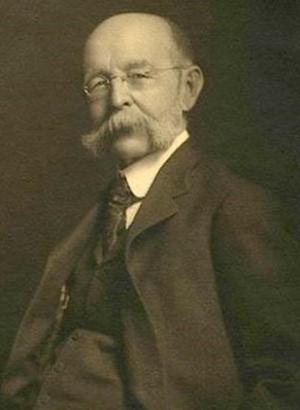 SKC Films Library |
| SKC Films Library >> Musics >> Biography: Composers and Songwriters |
| John Knowles Paine the first American composer to have a work performed in Europe, the first American to write a symphony, and the first professor of music in the United States
John Knowles Paine was born into a very musical family in Portland, Maine, on January 9, 1839. His father was a maker of instruments and the owner of a music store, as well as conductor of the town band; he had followed in his own father's footsteps, who had also made various musical instruments and conducted the Portland band. In addition to these family members, Paine could also boast of having two uncles and a sister who were musicians. John's own musical abilities became evident early in life, and he was taught organ, piano, harmony, and counterpoint by Herman Kotzchmar, a German immigrant who was himself a talented musician and composer. In 1857, Paine was voted organist of the newly organized Haydn Association, a choral society. His first successful public performance came soon after, when he accompanied a production of Handel's Messiah. In 1858, Paine traveled to Germany, where he spent four years studying organ performance, counterpoint and composition, and singing. During this time he also played several organ recitals in Berlin, most of which received rave reviews in local music journals. After returning to the United States in 1861, Paine moved to Boston, where he was hired as organist of the West Church. Six months later he was offered a position at Harvard University, where he taught music classes that, at the time, conferred no credit to the students. In 1866, Paine returned to Germany in hopes of getting his newly written Mass in D published. Unable to find anyone willing to organize a performance of the work, he organized his own chorus and coordinated a performance on his own. Despite receiving critical acclaim from Berlin music critics, he was never able to secure publication of the work, and returned to America in 1867. Although he had become the first American composer to ever have a work performed in Europe, Paine was unable to secure financing for an American performance of Mass in D, and it would never be performed in the United States during his lifetime. Paine's music classes at Harvard continued to be offered for no credit until 1869, when Harvard created a formal degree in music and Paine became the first official professor of music in the United States. His first class for credit, Theory of Music, was attended by only eleven students, but as American interest in music grew so too did class attendance. As Harvard's first, and for a time only, professor of music, Paine created the school's curriculum in music studies, which focused almost entirely on the works of Johann Sebastian Bach and Giovanni Palestrina. That curriculum was imitated by colleges across the country, and for many years was the standard for judging what music was and was not considered worthy of study. In addition to performing his duties as a professor, Paine continued to compose music, including America's first symphony. His magnum opus was a three-act opera titled Azara. Although it was enthusiastically received in concert performances, the work was never performed as an opera, principally because no opera companies (most of which featured Italian singers) were willing to learn English in order to perform the work. Other principal works include: Domine salvum fac, an anthem performed with choir and orchestra that was played at the inaugurations of two Harvard presidents; the overture and incidental music to Sophocles' Oedipus Tyrannus; Centennial Hymn, which, with orchestra, opened the Philadelphia Exposition of 1876; Columbus March and Hymn, which opened the Columbian Exposition of 1893; two symphonic poems; and, the overture to As You Like It. He also helped found the American Guild of Organists, and was an editor of Famous Composers and their Works. Paine resigned from Harvard in 1905 due to declining health and a desire to spend more time on composition. He died in Cambridge, Massachusetts, on April 25, 1906. Soon after his death, Paine's widow, Mary Elizabeth, established the Paine Traveling Fellowship, which is still awarded annually to undergraduate and graduate students who have demonstrated "distinguished talent and originality in musical composition and high musical scholarship." John Knowles Paine was inducted into the American Classical Music Hall of Fame in 1998. SEE ALSO |
| SKC Films Library >> Musics >> Biography: Composers and Songwriters This page was last updated on 01/09/2018. |
